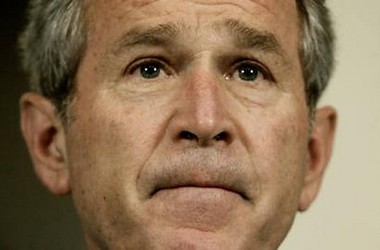 David Seaton's News Links
David Seaton's News Links Rarely, if ever have American's been both so well informed and so much in common accord about any issue as they are today about what is to be done with Iraq. We have an elite group of "gray beards", the Baker-Hamilton Commission, and on the other, the vast majority of Mr. and Mrs. John Q. Public; in this case, all are pulling in the same direction. The verdict: get out quick and organize a huge regional peace conference to cover the retreat by settling all the major issues outstanding. A general peace in the Middle East, means a peace that saves the "moderate" regimes allied with Washington and that means solving the Israel/Palestine conundrum in such a way as to salvage the prestige of those moderates with the "Arab street". That means Israel returning to its 1967 borders and turning Jerusalem into an international city and all of this without much real guarantee that Iran will forsake its nuclear programs. This is the total defeat of the neocon, hard-wilsonian project. So now we are finally going to see if AIPAC is really as powerful as it is supposed to be. This is their big test. Do they have the influence to overcome such a consensus? DS
A new poll by
WorldPublicOpinion.org finds that three out of four Americans believe that in order to stabilize Iraq the United States should enter into talks with Iran and Syria, and eight in ten support an international conference on Iraq. A majority also opposes keeping U.S. forces in Iraq indefinitely and instead supports committing to a timetable for their withdrawal within two years or less.(...) 75 percent say that the United States should have talks with Iran and the exact same number say that the United States should have talks with Syria. This diplomatic approach is endorsed overwhelmingly by both parties: eight in ten Democrats and seven in ten Republicans endorse talking with both Iran and Syria. There is also strong bipartisan support for calling a major international conference where diplomats from the United States, Europe, the United Nations and the Arab world could meet Iraqi leaders to discuss how to stabilize Iraq and encourage economic growth there. Seventy-nine percent (Republicans 79%, Democrats 80%) say they support such a conference; only 18 percent believe that instead foreign leaders should “stay out of Iraq’s affairs.” On the issue of how long U.S. troops should remain in Iraq, a majority of Americans reject the current policy of keeping troops in the country indefinitely. Fifty-eight percent say troops should be withdrawn according to a timetable, while 38 percent say that U.S.-led forces should only be reduced “as the security situation improves.” There is substantial variation in the length of the timetable preferred: 18 percent prefer six months, 25 percent one year and 15 percent two years. There are partisan differences on this issue, however. While most Democrats (78%) think U.S. forces should be out within two-years or less, including 61 percent who favor a one-year or less, a majority of Republicans (64%) believe forces should be withdrawn only as security improves. Fifty-six percent of Independents also support withdrawal within two years. Support for withdrawal according to a timetable becomes stronger “if the majority of the Iraqi people say they want the U.S. to commit to withdraw U.S. forces according to a timeline of no more than a year.” Seventy-three percent say the United States should withdraw in a year or less if most Iraqis want them to, including 67 percent of Republicans and 82 percent of Democrats. Fifty-eight percent also believe that the majority of the Iraqi people want the US to commit to one-year timeline. A poll of the Iraqi public conducted by WorldPublicOpinion.org in September 2006 found that 71 percent want U.S.-led forces to commit to withdraw within a year.(...) This desire for a commitment to pull U.S. troops out within a year appears to arise from doubts about whether the U.S. presence helps or hurts stability in Iraq. Six in ten Americans (60%) believe that the United States’ military presence in Iraq is provoking more conflict than it is preventing. Only 35 percent believe U.S. troops are stabilizing the country. The belief that U.S. forces are provoking conflict has risen 5 points since March 2006 and 9 points since October 2004.
READ THE ENTIRE POLL
 David Seaton's News Links
David Seaton's News Links
No comments:
Post a Comment